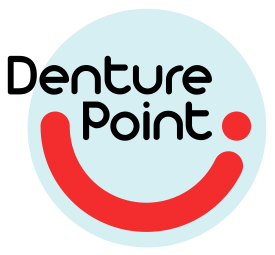Dental Points By DenturePoint - HYGIENE of Dentures
Why it’s important to keep your dentures clean:
To the naked eye your dentures will appear clean and shiny but in fact the surface is full of microscopic pores. These pockmarks are a harbour for pathogens and when your dentures are not cleaned on regular basis they will attach to them.
Bad hygiene of your false teeth leads to systemic disease and even put you at risk for heart disease. Worse, some of the germs that live on your dentures can be breathed into the lungs and cause serious infections such as pneumonia.
The bad hygiene of the dentures may also lead to denture induced stomatitis or oral thrush caused by the overgrowth of Candida Albicans.
Denture owners with low saliva flow should be particularly concerned about the cleanliness of their dentures.
How to keep your dentures clean
Clean your dentures using a soft toothbrush and mild soap and water or denture tablets. Standard toothpaste is not recommended as it is abrasive.
Clean your dentures over a hand-basin half filled with water to prevent breakage if dropped.
Brush your gums, tongue and palate (roof of your mouth) morning and night before you insert your dentures. This stimulates circulation in your tissues and helps remove plaque.
If you find that your denture has a build up (tartar or calculus), soak it in white vinegar (1 part) and water (4 parts). If you still can’t remove the build up, call your dental prosthetist and make an appointment to have your denture professionally cleaned.




